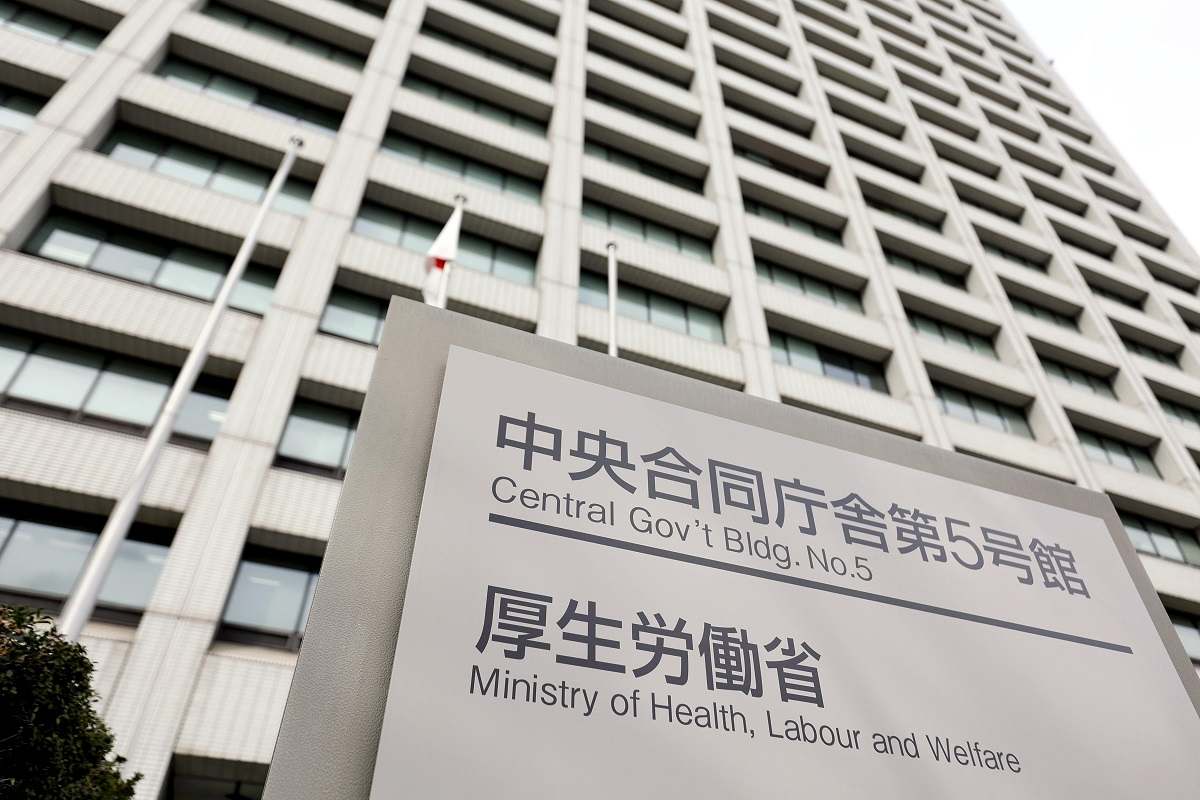Health Ministry: At Least 10,000 Possibly Brain-Dead Patients in 2023; Number of People Declared Brain Dead Only 132 in Same Year

The Health, Labor and Welfare Ministry in Tokyo
16:08 JST, June 18, 2024
There were at least 10,000 patients who were possibly brain dead in Japan in 2023, according to an estimate by the research team of the Health, Labor and Welfare Ministry. It was the first time the ministry had made such an estimate.
The number of people who were declared brain dead for organ donation in the same year was only 132.
The team believes that if more families were given the option of organ donation, it might lead to an increase in the number of potential donors.
The survey was conducted by a team of doctors, including those from Nippon Medical School Hospital in August 2023, and polled 895 university hospitals, emergency hospitals and other facilities that can determine brain death.
The survey asked about the number of patients who met the four criteria in order to be considered brain dead — including unconsciousness and dilated pupils — and who did not improve despite appropriate treatment within the week of Aug. 3.
A total of 184 patients met the four criteria at the 601 facilities that provided valid responses, or 67% of those surveyed. Based on these results, the team estimated that there were 9,568 potentially brain-dead patients in the facilities that responded to the survey alone.
To determine whether a patient is brain dead is based on the Organ Transplant Law.
While organ transplantation requires the consent of the family of a patient who has been declared brain dead, the family is rarely given the option to provide their consent. This is due to the fact that doctors, who are dedicated to saving lives, do not have time to do so. Additionally, they feel reluctant to inform families of the fact that recovery is unlikely for the patient.
It has also been pointed out that medical institutions are not remunerated for conducting tests prior to the legal declaration of brain death, despite such tests being required.
In addition, medical criteria must be met for individuals to become brain-dead donors. These criteria include the absence of organ-related issues, cancer and infections.
The age limit for donation varies depending on the organ. For example, donors must be 70 years old or younger to donate a lung or a kidney.
“Not all of the estimated potentially brain-dead patients can become donors,” said Nippon Medical School Prof. Shoji Yokobori, representing the study team. “However, the study has demonstrated the potential for significantly increasing the number of brain-dead donors if various efforts are made, thus saving more lives.”
The nation’s leading university hospitals for organ transplants, including University of Tokyo Hospital, have declined donations from brain-dead donors due to a lack of staff, hospital beds and other reasons, which is considered a significant challenge.
“It is essential to build a network to prevent strain on the organ transplantation system, while also implementing measures to alleviate the current hurdles in the process of declaring brain death,” Yokobori said.
◇◇◇
Develop systems to support transplants based on latest data
At least 10,000 patients per year in Japan could become brain dead, according to an estimate from a research team of the Health, Labor and Welfare Ministry survey. This figure serves as important basic data to help formulate strategies on how to promote organ transplants.
According to a 2021 Cabinet Office survey, 40% of respondents said that they either “want to donate organs” or “somewhat want to.” In order to fulfill someone’s desire to save another person’s life, it is essential to inform a patient’s family of the possibility that they could be brain dead and present the option of organ donation. However, this is currently the responsibility of doctors, placing on them heavy mental and physical burdens.
Among developed countries, Japan has the lowest number of organ donations from brain-dead individuals per capita. In the United States and South Korea, potential donors can be found through a system that requires medical institutions by law to inform an organ transplant coordination organization of patients who are possibly brain dead. Various support system for doctors also became available, contributing to the increase in number of donors. Japan needs to consider whether to adopt a similar system.
However, if such a system is introduced, medical institutions involved in transplants would face a heavy burden. Currently, some facilities refuse to accept donated organs, leading to concerns that if a similar system is introduced it could make the situation more serious.
Based on the estimate, the government should expedite discussions on supporting the costs necessary for training personnel involved in organ transplants and improving the system for relevant medical institutions.
Top Articles in Politics
-

Japan PM Takaichi’s Cabinet Resigns en Masse
-

Sanae Takaichi Elected Prime Minister of Japan; Keeps All Cabinet Appointees from Previous Term
-

Japan’s Govt to Submit Road Map for Growth Strategy in March, PM Takaichi to Announce in Upcoming Policy Speech
-

LDP Wins Historic Landslide Victory
-

LDP Wins Landslide Victory, Secures Single-party Majority; Ruling Coalition with JIP Poised to Secure Over 300 seats (UPDATE 1)
JN ACCESS RANKING
-

Producer Behind Pop Group XG Arrested for Cocaine Possession
-

Japan PM Takaichi’s Cabinet Resigns en Masse
-

Man Infected with Measles Reportedly Dined at Restaurant in Tokyo Station
-

Israeli Ambassador to Japan Speaks about Japan’s Role in the Reconstruction of Gaza
-

Videos Plagiarized, Reposted with False Subtitles Claiming ‘Ryukyu Belongs to China’; Anti-China False Information Also Posted in Japan
























